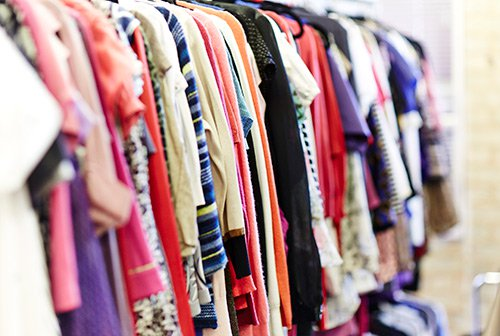
Should You Wash New Clothes Before You Wear Them?
When buying a new piece of clothing, you probably think you can get away with wearing it right away, without a proper wash, because only a few people have tried it on. Think again.
According to Philip Tierno, professor of microbiology and pathology, the number of people who have tried on that blouse you bought or that dress you decided to splurge on might actually be a lot higher than you think.
“It’s not four or five or six people; it’s dozens and dozens ... if that garment sits there for weeks or a month,” he said.
He tested clothing (blouses, pants, dresses, swimsuits, underwear, etc.) from popular chain stores and high-end fashion businesses for bacteria and other germs left behind by shoppers who tried an item on but didn’t buy it. In his research, he’s found clothing with norovirus, bacteria including strep and staph, and even fecal germs.
There are three main ways we spread germs: from our skin, respiratory tree (mouth and nose) and anus. If you touch clothing that has germs on it and then touch your mouth, eyes or nose, you’re putting yourself at risk.
That risk is “very low” when it comes to getting a significant infection. Still, the possibility is there, especially if you have broken skin from a cut.
Germs aside, many clothing items are also treated with chemical-finishing agents and dyes that can irritate the skin, which gives you another reason to head to the laundry room before wearing your new look.
Irritations can occur within hours or days of exposure to clothes that have been “washed with a particular detergent or processed with a particular chemical additive, dye, resin or tanning agent” before being put in stores. For example, formaldehyde, which is used in “wrinkle-free” clothing, cause allergic reactions in clients.
Feely recommends using a detergent and fabric softener that are fragrance-free and dye-free. “Run the wash through an extra rinse cycle to help wash off these detergents.
Again, when trying on clothes, the risk of infecting yourself with something serious isn’t alarming, but it’s easy to protect yourself. It’s best to wash your hands properly after a fitting room session, especially before you eat, drink or touch your face.
 English
English Arabic
Arabic


